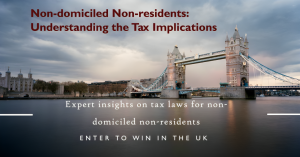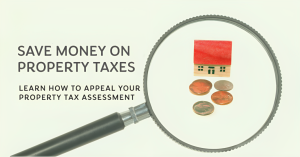Save Tax On Rental Income
Tax on rental income remains one of the key concerns for taxpayers in England. However, there are various legal ways through which you can Save tax on rental income. Our experts walk you through all these steps in this article. So stay with us!
Reducing tax by claiming all expenses
Landlords can claim various expenses against their rental income to reduce their tax liability. Some common expenses that can be claimed include:
Mortgage interest: Landlords can now claim mortgage interest as an expense. But starting from April 2020 the UK government has been gradually reducing the ability to avail tax relief on mortgage interest for residential properties. limiting it to a maximum of 20%.
Repairs and maintenance: Landlords can claim the cost of repairs and maintenance to the property. Including the cost of any materials used.
Insurance: Landlords can claim the cost of insurance for the property, including landlords’ insurance and contents insurance.
Agent’s fees: Landlords can claim the cost of using an agent to manage the property.
Utilities: Landlords can claim the cost of utilities, including gas, electricity, and water.
Legal fees: Landlords can claim the cost of legal fees for the property. Such as the cost of drawing up a lease agreement.
It’s important to keep detailed records of all expenses. Consult with a tax professional to ensure compliance with the regulations and to claim the expenses correctly.
Reducing Tax by creating joint ownership
One way to reduce property tax on rental income in England is to create joint ownership of the property. By doing so, each owner can claim a portion of the rental income and associated expenses on their individual tax returns. This can help to reduce the overall tax burden. As the income and expenses will be spread out among multiple individuals. Additionally each owner can take advantage of their individual tax allowances and reliefs to minimize their tax liability. It is important to consult with a tax professional or financial advisor before creating a joint ownership structure to ensure compliance with tax laws and regulations.
Reducing tax by forming a limited company
Forming a limited company in England can potentially Save tax on rental income by allowing you to take advantage of business tax rates. which are generally lower than personal income tax rates. Additionally you may be able to claim business-related expenses, Such as mortgage interest as tax-deductible expenses. However, please note that you will be required to register your company with Companies House and file annual accounts and corporation tax returns. Additionally, you will be subject to different laws and regulations as a company. it is advisable to consult a professional tax advisor or accountant to ensure that you are fully compliant with all legal requirements and to discuss the best options for your specific situation.
Reducing tax by claiming private residence relief
Private Residence Relief (PRR) can be claimed to reduce the amount of tax owed on rental income. from a property that is also used as the taxpayer’s primary residence. To claim PRR the taxpayer must have lived in the property at some point during the time. it was rented out and the property must be the taxpayer’s main residence at some point during the ownership. The relief can be claimed on the portion of the property that was used as the main residence. the tax on the rental income from that portion of the property will be reduced. It is important to note that relief is not available for furnished holiday lets.
Reducing tax on rental income by carrying forwarding losses
In England you can Save tax on rental income by carrying forward losses to offset future rental income. To do this you would need to file your tax return and report your rental income and expenses. If your expenses exceed your income. resulting in a loss you can carry forward that loss to offset future rental income. You will need to keep records of your income and expenses to support the losses you are carrying forward. Additionally, it’s a good idea to consult a tax professional or accountant. To ensure you are taking all the deductions and credits that you’re eligible for.
Reducing tax on rental income by planning your payments
There are several ways to save tax on your rental income through careful planning of payments. Some of these include:
Maximizing your expenses: You can claim various expenses against your rental income such as repairs and maintenance. mortgage interest and insurance. By maximizing these expenses. you can reduce your taxable rental income.
Timing your income and expenses: By timing your income and expenses correctly. You can ensure that you’re paying tax on the lowest possible amount of income. For example, if you are expecting to make a large repair or purchase. it may be beneficial to pay for it in the same tax year as your rental income to reduce your taxable income.
Rent-a-room relief: If you rent out a room in your own home. You may be eligible for rent-a-room relief. which allows you to earn up to £7,500 per year tax-free.
Capital allowances: If you make any capital expenditures on your rental property such as new appliances. you may be able to claim capital allowances which can reduce your taxable income.
Consider incorporating: If you have significant rental income. consider incorporating your rental business as a Limited Company. This can help you to reduce your tax bill and provide other benefits. such as limited liability protection.
It’s important to keep in mind that tax laws and regulations are subject to change and it’s always a good idea to consult a tax professional or accountant to ensure you are taking all the deductions and credits that you’re eligible for and that you are complying with all tax laws and regulations.
Reducing tax on rental income by utilizing all tax-bands
You can reduce your tax on rental income by utilizing all of the available tax bands. This can be done by:
Spreading your income: By spreading your rental income over multiple tax years, you can ensure that you’re paying tax at the lowest possible rate. This can be done by, for example, delaying the receipt of rent payments or by deferring the sale of a property.
Utilizing personal allowances: Every individual has the right to a personal allowance, which represents the income amount they can earn before taxes come into effect. By utilizing your personal allowance, you can reduce your taxable rental income.
Utilizing the basic rate band: The basic rate band is the amount of income you can earn before you start paying tax at a higher rate. By ensuring that your rental income is within the basic rate band, you can reduce the amount of tax you pay.
Utilizing the higher rate band: If you are earning more than the basic rate band, you can reduce your tax bill by taking advantage of deductions, such as pension contributions, that are available to higher-rate taxpayers.
Utilizing the additional rate band: In order to avoid paying the additional rate of tax. You can plan your rental income and expenses in a way that keeps your total income below the threshold for the additional rate band.
It’s important to note that tax laws and regulations are subject to change and it’s always a good idea to consult a tax professional or accountant to ensure you are taking all the deductions and credits that you’re eligible for and that you are complying with all tax laws and regulations.
Reducing tax by utilizing mortgage interests
You can reduce your tax on rental income by utilizing mortgage interest as a deductible expense. This means that you can deduct the interest paid on your mortgage from your rental income before calculating the amount of tax you owe. This can significantly reduce the amount of tax you owe on your rental income. However, please consult with a tax professional or accountant to get the most accurate and up-to-date information. On the tax implications of renting out a property, as tax laws can change.
Reducing tax on rental income by short-term tenants
One way to reduce tax on rental income from short-term tenants is by taking advantage of the Rent a Room Scheme. This scheme allows you to earn up to £7,500 per year tax-free from renting out a furnished room in your own home. This means that you do not have to pay income tax on this income. Which can significantly reduce the amount of tax you owe on your rental income. However this scheme only applies if you are renting out a furnished room in your own home and not an entire property.
Another approach involves considering the rental of furnished holiday lets. This option enables you to claim capital allowances on furnishing expenses. thereby reducing the taxable rental income.
Please consult with a tax professional or accountant to get the most accurate and up-to-date information on the tax implications of renting out a property, as tax laws can change.
Reduce your property taxes legally through WSPTAX

Welcome to We Save Property Tax, your trusted property tax specialists and accountants in United Kingdom.
Are you tired of paying high property taxes? We understand how overwhelming and stressful it can be to navigate complex tax laws and regulations. That’s where we come in.
Our team of tax experts with years of experience in the field. Is committed to aiding you in legally and efficiently lowering your property taxes. We remain current with the latest tax laws and regulations. applying our knowledge and proficiency to assist you in securing all entitled deductions and credits.
We offer a wide range of services. Including property tax assessments, appeals and representation. As well as accounting and bookkeeping services. Our goal is to provide you with the support and guidance you need to make informed decisions about your property taxes.
Don’t overpay your property taxes any longer. Contact us today to schedule a consultation and let us help you save money and ensure compliance with the law.









